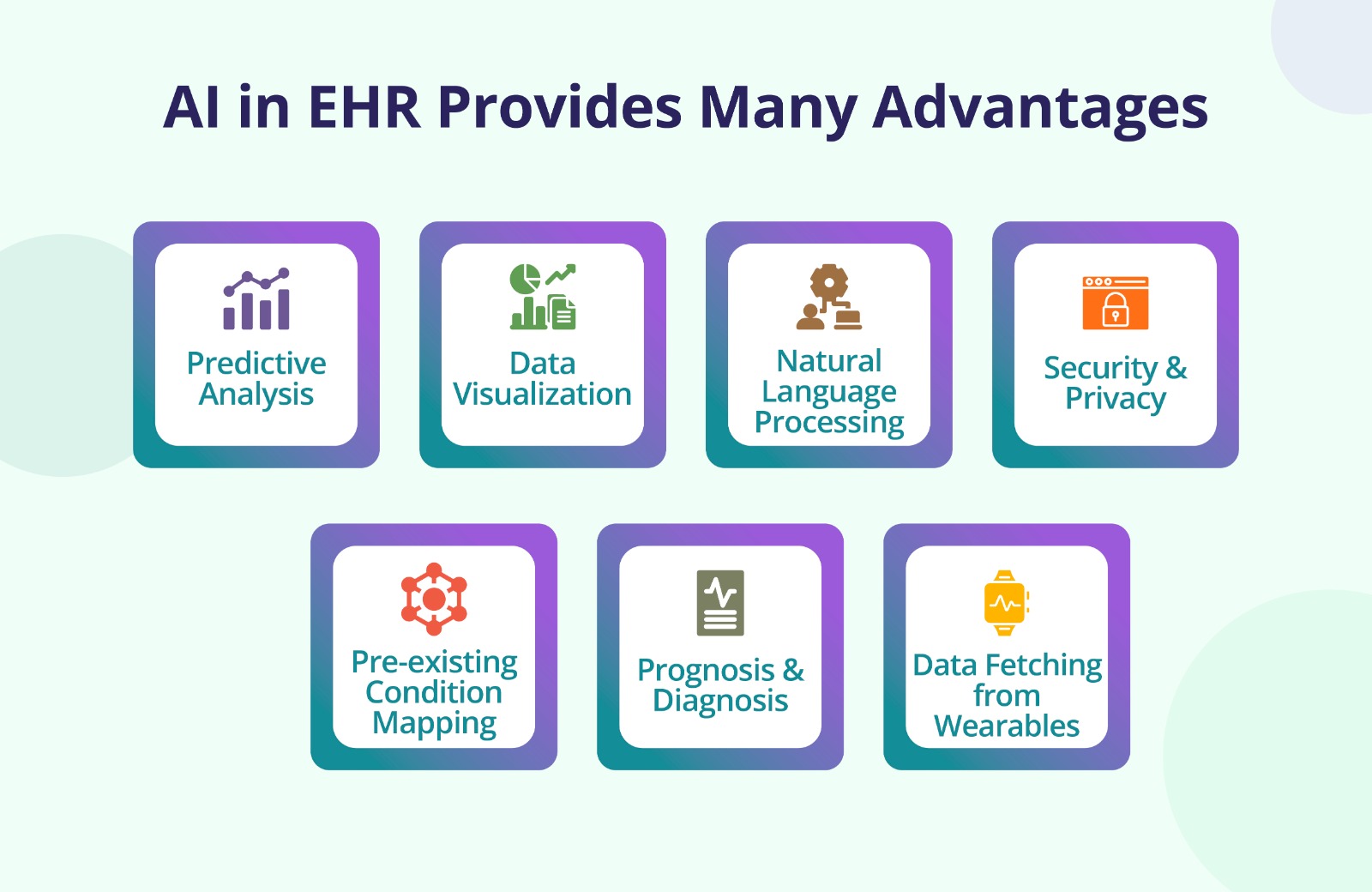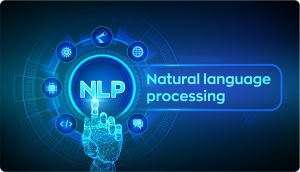
Artificial Intelligence (AI) can play a significant role in assisting with Electronic Health Record (EHR) data organization in the healthcare sector. EHRs contain vast amounts of patient data, including medical histories, diagnoses, treatments, and more. The sheer volume and complexity of this data make it challenging for healthcare providers to manage it effectively. AI in healthcare can offer valuable insights and support in organizing and analyzing EHR data, leading to improved healthcare outcomes and operational efficiencies.
Data specific to the USA is abundant due to the extensive adoption of EHR systems in the country. Organizations like the Centers for Medicare and Medicaid Services (CMS) and the National Institutes of Health (NIH) have made large-scale EHR datasets available for research purposes. These datasets, such as the Medicare data or the Electronic Medical Records and Genomics (eMERGE) Network data, provide a rich source of information for AI-assisted EHR data organization.
AI in Healthcare is transforming EHR data – The data supports it

AI in healthcare assists with EHR data organization by automating data structuring, enabling clinical decision support, providing predictive analytics, supporting population health management, and improving clinical documentation.
The examples and insights provided are based on research studies, industry reports, and the widespread adoption of EHR systems in America. These sources demonstrate the potential benefits and real-world applications of AI data automation in the context of EHR data organization.
Here are specific insights related to EHR data organization in the USA, along with supporting statistics:
1.Data Organization and Structuring: AI can help organize unstructured EHR data into a structured format. Natural Language Processing (NLP) techniques enable AI algorithms to extract relevant information from clinical notes, lab reports, and other textual data. This structured data can then be used for various applications, such as clinical decision support systems, predictive analytics, and population health management.
According to a survey conducted by the Office of the National Coordinator for Health Information Technology (ONC) in the USA, 75% of hospitals reported using AI or machine learning for EHR automatic data processing and analysis.
2. Clinical Decision Support: AI algorithms are being used for healthcare data automation to make it possible to analyze EHR data to support clinical decision-making. Machine learning algorithms can identify patterns in patient data, flag potential drug interactions, recommend appropriate treatment options, and provide real-time alerts for critical conditions. This can enhance patient safety and improve the overall quality of care.
A study published in the Journal of the American Medical Association (JAMA) found that an AI system effectively identified diabetic retinopathy in retinal images from EHRs, achieving a level of accuracy comparable to that of human ophthalmologists.
3. Predictive Analytics: AI can leverage EHR data to predict future health outcomes. By leveraging historical EHR data, AI algorithms can identify trends and patterns that may indicate future health outcomes. For example, predictive models can help identify patients at risk of developing chronic conditions or predict readmissions. This enables healthcare providers to intervene proactively, personalize treatment plans, and allocate resources more effectively.
A study published in PLOS ONE (peer reviewed Public Library of Science) examined the use of machine learning algorithms on EHR data to predict unplanned hospital readmissions. The study found that these algorithms achieved an area under the receiver operating characteristic curve (AUC-ROC) of 0.71, indicating moderate accuracy in predicting readmissions.
4. Population Health Management: AI can aggregate and analyze EHR data at a population level to identify health trends and patterns across a community or region. This can help public health officials and healthcare organizations identify areas of concern, target interventions, and allocate resources strategically. AI-powered analytics can also aid in monitoring the effectiveness of interventions and tracking population health metrics over time.
The American Medical Association (AMA) reports that AI tools are being used to identify high-risk patient populations, predict disease outbreaks, and optimize resource allocation. These applications aim to improve health outcomes at a population level.
5. Clinical Documentation Improvement (CDI): AI can enhance clinical documentation in EHRs. Natural Language Processing algorithms can review clinical notes and suggest additional documentation based on context and standards of care. This can enhance the accuracy of coding, billing, and reimbursement processes while reducing the administrative burden on healthcare providers.
According to a report by Black Book Market Research, 87% of healthcare provider organizations in the USA stated that AI-powered CDI solutions have improved clinical documentation accuracy and reduced revenue leakage.
It’s important to note that while AI offers tremendous potential in improving EHR data organization, it is crucial to address concerns regarding data privacy, security, and bias. Responsible AI implementation, along with compliance with relevant regulations such as the Health Insurance Portability and Accountability Act (HIPAA), is essential to maintain patient confidentiality and trust in the healthcare system.
Also read: Challenges and Opportunities for AI Integration in EHR Systems
Zooming in to AI-powered data organization for medical practices
With EHRs becoming increasingly common, many physicians are dealing with information overload because of overwhelming amounts of stored clinical data. AI has been proving itself as a boon because it can organize automatically patient records and improve data retrieval. RehabOne, the proprietary EHR platform from iTech has specifically addressed many of these challenges.
Here are some examples of AI implementation specifically for smaller medical practices:
- AI-powered tools can automate data entry processes, reducing the time and effort required for manual data input. For example, Optical Character Recognition (OCR) technology can extract relevant information from scanned documents or handwritten notes and populate the EHR system automatically. This reduces administrative burden and minimizes the risk of errors. DocExtract from iTech is an AI-powered document processing system that integrates advanced capabilities.
- Intelligent Data Categorization – AI algorithms can analyze and categorize medical data in EHRs. For instance, AI can automatically assign codes to diagnoses, procedures, and treatments, ensuring accurate billing and reimbursement. This eliminates the need for manual coding and improves coding accuracy, leading to proper reimbursement and reduced revenue leakage.
- Clinical Decision Support Systems (CDSS) – AI-powered CDSS can assist clinicians in smaller medical practices with limited resources, CDSS can help ensure that clinicians have access to the latest medical guidelines and best practices. For example, an AI-based CDSS can analyze patient data and suggest appropriate treatment options or flag potential drug interactions, enhancing patient safety.
- Voice Recognition and Documentation – AI-powered speech recognition technology can convert spoken words into text, enabling clinicians to dictate clinical notes directly into the EHR system.
- Telemedicine and Remote Monitoring – AI algorithms can analyze patient-generated data, such as vital signs or symptoms, collected through wearable devices or mobile apps. This helps clinicians monitor patients remotely, make timely interventions, and provide personalized care without requiring in-person visits.
Read iTech’s case study on developing an HIPAA compliant telemedicine app in record time for an American health organization during the pandemic.
These are just a few examples of how AI can be implemented in medical practices to enhance data organization and improve overall efficiency. It’s important to note that the specific implementation of AI technologies may vary based on the needs, resources, and infrastructure of each practice.
Speak to an expert
Ai democratization has made it possible for medical organizations of any size to leverage AI-powered solutions. Speak to our expert EHR team to know first-hand how RehabOne or DocExtract can be adapted to your unique needs. Request a Demo Today!









